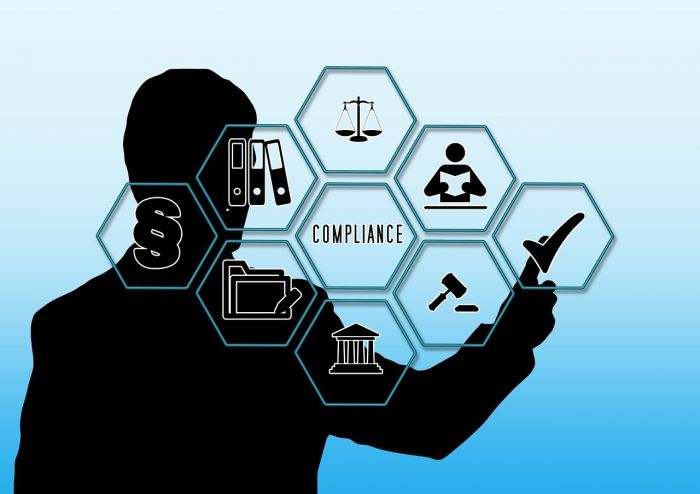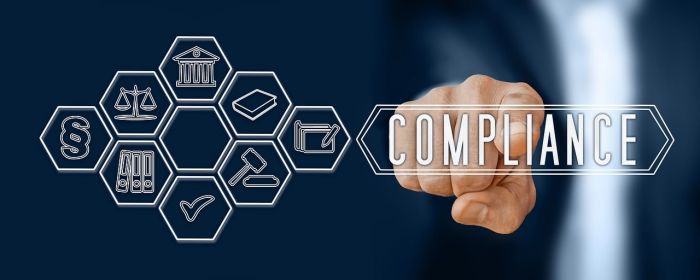Compliance is crucial in today's complex and globalized business landscape. Regulatory frameworks grow increasingly intricate, pressuring businesses to sustain transparency and accountability. The severe repercussions of non-compliance highlight the need for companies to give compliance top priority in their operations.
Compliance not only shields against penalties, it cultivates trust among stakeholders. In cutthroat markets, a company dedicated to moral behavior and legal norms comes out as appealing. Compliance therefore transcends basic legal obligations to become a strategic advantage promoting sustainable development.
Strong compliance guarantees companies follow rules, simplify procedures, and reduce risks. This post will go over why companies should have a strong compliance system and how it would help their long-term viability.

Compliance in business is the capacity of a company to follow laws, rules, and industry-specific guidelines controlling its activities. These rules might call for health and safety rules, financial guidelines, or data privacy laws. Businesses have to follow different compliance systems depending on their sector in order to safeguard stakeholders and preserve moral standards.
For example, financial institutions that do not comply with anti-money laundering (AML) laws face sanctions and legal action. To avoid these risks, companies in the financial sector should thus give industry-specific AML compliance platforms like Alessa some thought. These platforms come with features like identity verification, transaction monitoring, and sanctions screening, among others to promptly recognize and lessen probable risks before they disrupt business activities.
Beyond external regulations, companies also establish internal compliance policies to govern employee conduct, cybersecurity practices, and operational procedures. Clearly defined compliance policies guarantee that every participant—from staff members to outside vendors—follows the necessary guidelines. Businesses run possible liabilities and operational inefficiencies without a disciplined compliance strategy.
Non-compliance can have serious repercussions, both financially and operationally. Regulatory authorities impose heavy fines on businesses that fail to meet legal requirements. For example, GDPR violations have resulted in multibillion-dollar penalties for companies mishandling customer data. To be more precise, the biggest penalty for breaking GDPR regulations was given to Meta Platforms, Inc. in May 2023 and it was a sum of 1.2 billion euros.
Beyond monetary penalties, non-compliance can erode a company’s reputation. Clients and business partners may feel hesitant to trust companies that have previously violated regulations. Also in some instances, companies might encounter problems with their operations which could include limitations on activities in certain markets or halts of important business functions. Ensuring compliance is not just about avoiding penalties; it’s about maintaining credibility and long-term sustainability.
A robust compliance solution should include automated monitoring and reporting tools that help businesses track regulatory changes and ensure continuous adherence. Automation reduces human error and streamlines compliance processes, making it easier for companies to generate reports, manage audits, and document compliance activities.
Another absolutely essential quality is integration with current corporate systems. Compliance solutions ought to fit security systems, CRM tools, and ERP systems perfectly. Strong compliance strategies should also incorporate well defined policy enforcement tools and staff training initiatives. Just as crucial as having the correct technology in place is ensuring staff members follow compliance policies.
Implementing a compliance solution enhances trust and credibility. Customers, investors, and partners are more likely to engage with businesses that demonstrate strong regulatory adherence. A proactive compliance approach signals a commitment to ethical business practices and data security, fostering long-term relationships with stakeholders.
Additionally, by letting companies stay in advance of legal changes, compliance solutions assist in decreasing legal and monetary risks. By automating repetitive compliance activities, they increase operational productivity and free teams to concentrate on main business operations. A flexible compliance system that adapts to new needs helps companies to keep being compliant without unwelcome disruptions as rules are always changing.

Choosing the correct compliance solution is dependent on a company's unique needs and industry standards. Companies should search for solutions that can grow with them, have easy-to-use interfaces, and allow monitoring of compliance in real time. It is also important to make sure that the solution consistently updates itself according to changing rules for it to be effective over an extended period.
Compliance solutions, which are robust, serve as strategic assets that promote trust, enhance efficiency and facilitate business growth. They do more than just shield from legal troubles. Companies giving compliance top importance can avoid expensive fines, maintain their reputation, and run with more efficiency in controlled surroundings. Businesses must make investments in dependable compliance solutions particularly in light of changing regulatory environment so that they remain compliant and competitive.
Be the first to post comment!